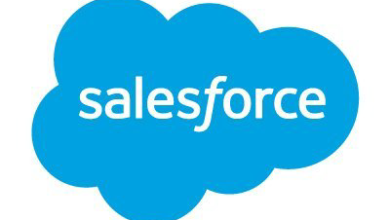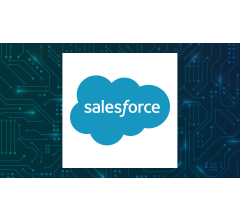Best CRM for small business of 2024

The best CRM for small business makes it simple and easy for starter and family-run businesses to set up and manage a contact platform for customers, staff, and suppliers.
Best CRM for small business of 2024: Quick menu
CRM software (customer relationship management) usually comes with a variety of different features and tools, but ultimately its purpose is to streamline processes and improve the service your business offers.
While businesses have different requirements, the best CRMs for small business should assist in managing your existing and potential clients, and enable real growth.
However, deciding which of the best CRM software to use can feel like an overwhelming decision when the market is so competitive. Even worse is that it’s easy to be given the impression that these are effectively platforms for enterprises only.
In which case, the first step for any small business owner is to understand the reasons why you need a CRM in the first place. Then, when you’ve decided that a CRM is of benefit to your business, focus on finding a platform which is best in terms of ease of use, affordability, and key features, i.e. functionality that will benefit your specific business type, your business goals, and the sector you operate in.
In this guide, we’ll highlight the CRM solutions we consider to be the best for small businesses.
You can learn more about small business CRMs with our article 5 reasons why you need a small business CRM or, if your business is in real estate, then we have a guide specifically tailored for your sector: the best CRMs for real estate.
The best CRM for small business of 2024 in full:
Why you can trust TechRadar
We spend hours testing every product or service we review, so you can be sure you’re buying the best. Find out more about how we test.
Best overall
While Salesforce is perhaps best known as the market-leading CRM giant adept at managing the operations of enterprise-level businesses, it offers solutions for small businesses too.
Providing an all-in-one solution to your sales, service, and marketing needs, Salesforce offers competitive plans for smaller businesses with its Small Business Pricing Solutions. The Essentials package provides both sales and customer service in one simple app for just $25 per user a month. This means smaller businesses can enjoy the power of market-leading CRM at a lower price.
Overall, the Salesforce interface is intuitive and sales-focused, but you can customize features like dashboards and reports to match your business needs and personalize your user experience. The CRM also boasts additional features to streamline your sales and business processes, including internal communication tools like on-screen calls, the easy creation of a client knowledge base, data export, email templates, and third-party tool integration with apps like Slack.
Find out more by reading our full Salesforce Service Cloud review.
Best all-rounder
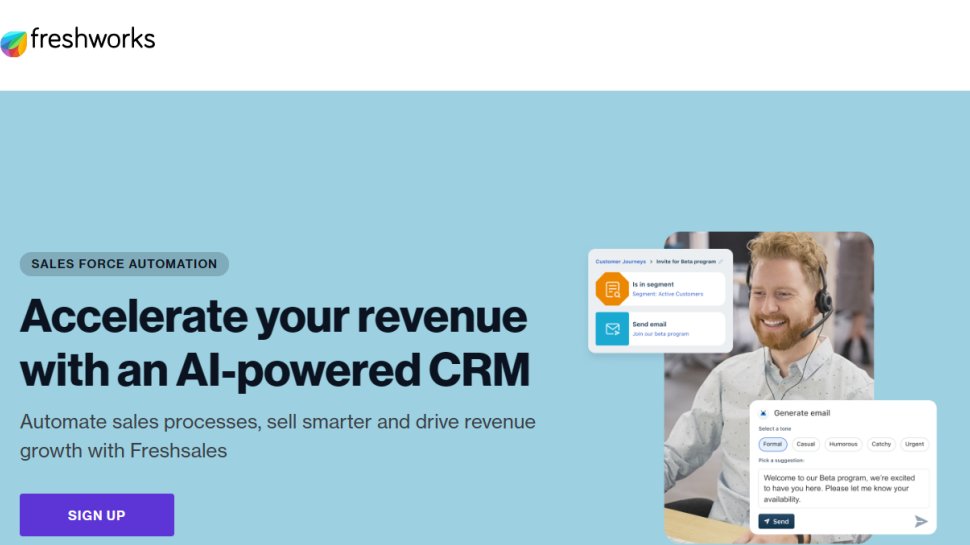
Freshsales provides a variety of tools that make it simple for small- and mid-sized businesses to support their clients, understand customer intent, and efficiently convert leads into sales.
A combination of the Freshworks automation software, the Freshsales suite is all-in-one CRM software that unites sales and marketing.
Utilizing the intelligent Freddy AI assistant, the Freshsales provides transparent insights into customer engagement, helping businesses discover leads, close deals, and nurture client relationships. The software also has an intuitive, user-friendly interface on both desktop and mobile, providing fast access to client records and communications.
Third-party tools like Gmail and Outlook are also easily integrated, allowing you to create bulk email templates while monitoring both sent and received communications to prospective clients. Businesses can also utilize the built-in call feature to automatically update client records.
While the CRM is lacking lead generation tools like business card scanners, it provides customizable web forms to capture lead data from your business website—ideal for smaller businesses looking to grow their client base.
Read our full Freshsales review.
Best for ease-of-use
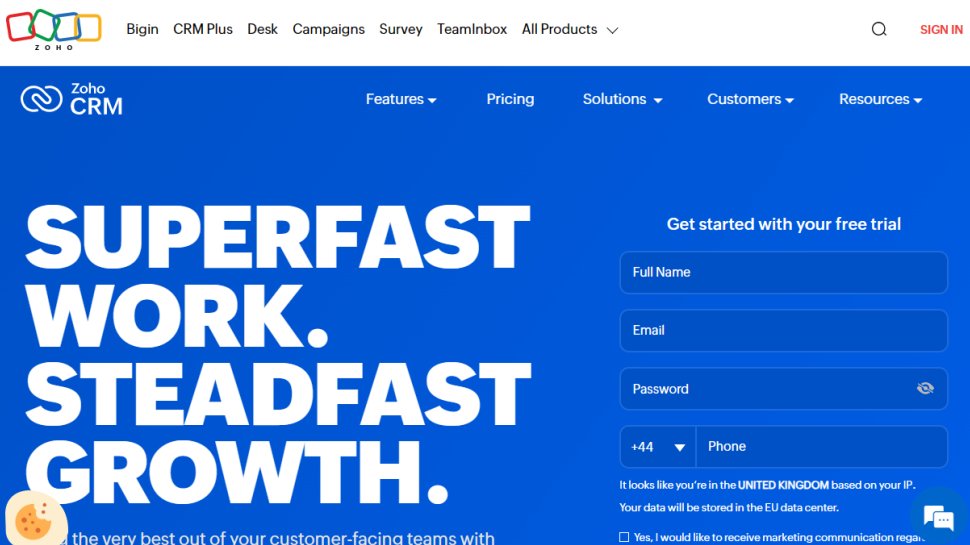
Powerful cloud-based CRM software boasting excellent customer management and lead generation tools, Zoho CRM is well-equipped to assist in running a small business.
While the platform is very easy to use, it doesn’t compromise on capability—the software features the ability to search social media and LinkedIn to capture new customer contacts, scan business cards, and provide automated workflows to assist sales teams. Alongside this, you can benefit from reporting, client contact and communication records, website visitor segmentation, and pipeline management.
The main pro to the CRM, however, is the seamless integration with other Zoho tools, including the Zoho sales, marketing, and project management suite, Zoho Invoice, and Zoho Campaigns. Overall, Zoho CRM can be pricey, but with a solid free plan.
Check out our full Zoho CRM review.
Best free
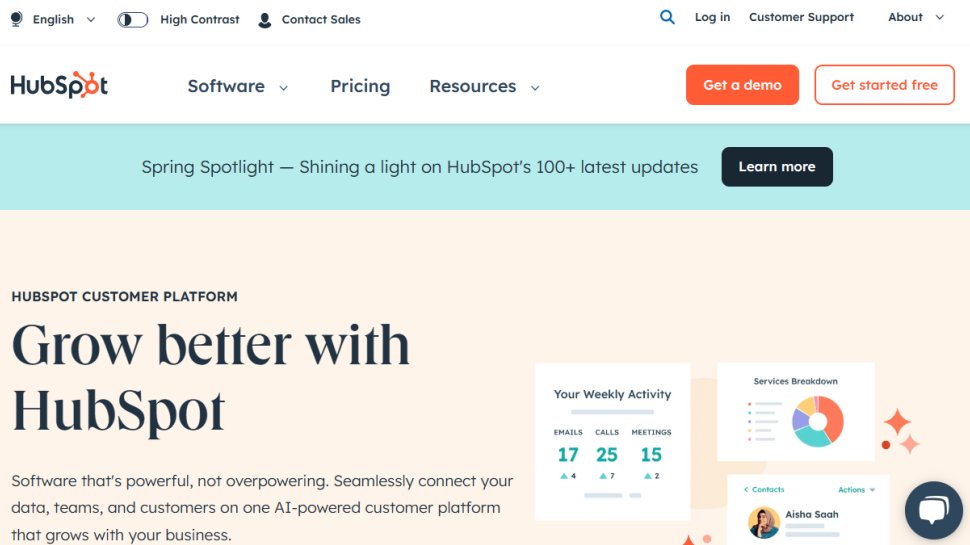
HubSpot is an ideal CRM solution for small businesses just starting out. While there are several paid plans, you can also get started free of charge with a lightweight yet powerful version of the CRM software.
Users of the free HubSpot CRM can benefit from highly capable client database software to assist in managing and maintaining new leads, with dashboard reporting, company insights, deal tracking, and pipeline management—all of which are portrayed simply via the user-friendly interface.
A wide range of free tools is also at your disposal to organize your customer journey, including email tracking and templates, on-screen calling, and contact management. Plus, you can enjoy integration from over 300 third-party apps like Slack, along with lead-generation software.
If you fancy upgrading from the free plan, both the Sales and Marketing Hubs start at $45 a month for two users, with additional features like task automation notifications and conversation routing included.
Read our full HubSpot CRM review.
Best for sales
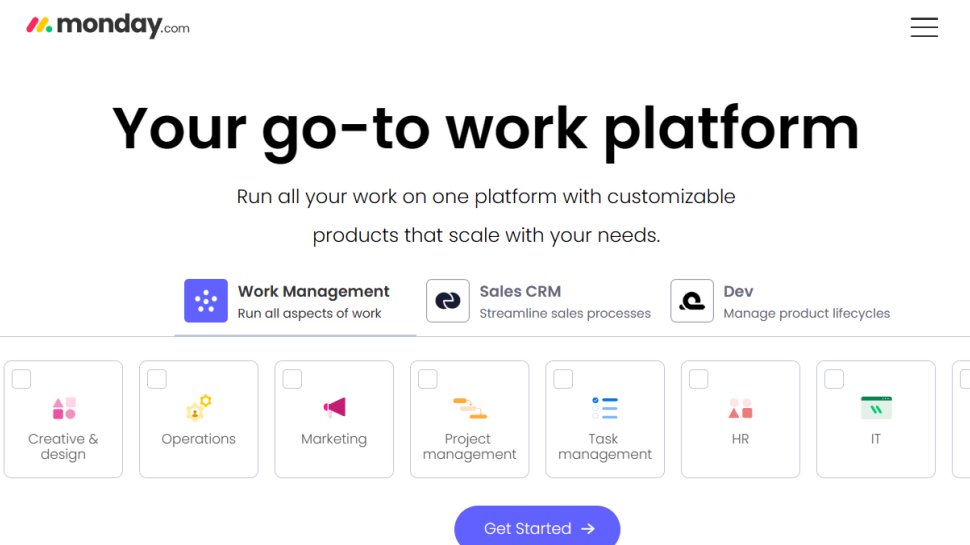
If you’re a sales and marketing leader, Monday Sales CRM is the perfect CRM platform for you. It’s easy to use and has lots of tools to help you manage your customer journey. Plus, you can customize the software to fit your needs. You can send and receive emails, take notes during meetings, and view all your communications on one timeline.
The main feature is managing contacts, which helps you keep track of all your clients and potential clients in one place. Yes, in fact all of your clients as it is unlimited to the number of contacts that you can have so this is a solution that can certainly grow with your business. Plus, you get email support with templates that save you time by automatically filling out personalized emails.
Automation is another great feature that businesses can take advantage of. It can help you create custom workflows to get rid of admin stuff and make communication easier, but you’ll need a plan that’s higher than the basic one. But if you don’t upgrade to a higher plan, you’ll only be able to do 250 activities a month.
Monday CRM has four different plans. Each plan has to have at least 3 seats, so it’s not great for solo businesses as you will have to pay for seats that are unused. There’s no free trial, but you can try it for two weeks and get 18% off if you pay annually.
Read our full Monday Sales CRM review.
Best for Gmail
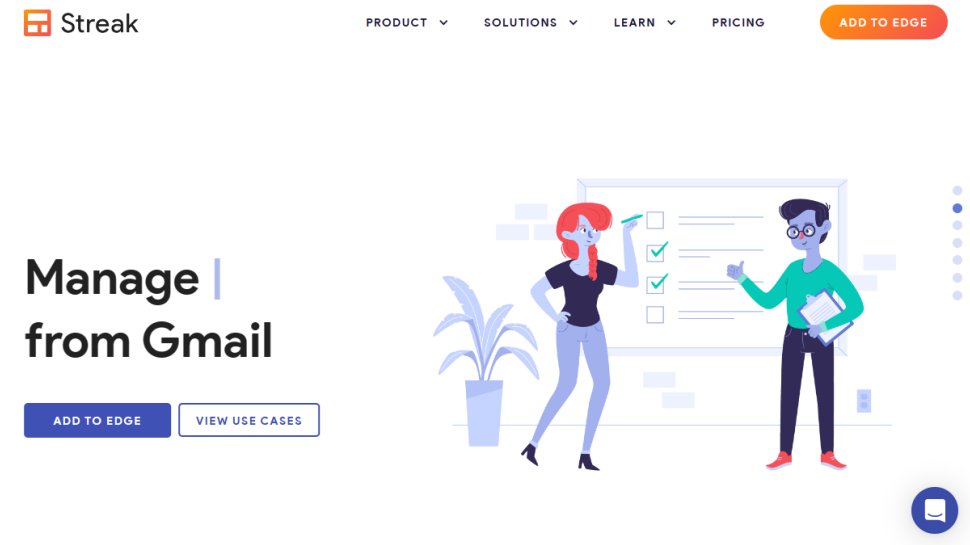
For existing users of Gmail and Google Workspace, Streak is the simplest CRM to incorporate into the daily operations of your small business. It is built directly into Gmail, so you can work from your inbox and enjoy integration with other Google Workspace apps like Sheets, Docs, Drive, and Chat to help keep all your data accessible and in one place.
Streak CRM allows you to track client emails, manage contacts, monitor leads, and keep on top of your sales funnel. You can capture leads directly from your contacts, track and share client interactions, easily import or export data, create custom pipelines, and set tasks and reminders, among other things.
With a forever-free plan offering basic CRM to individual professionals, Streak CRM is highly affordable for single professionals or small teams and businesses. However, it can get pricey if you’re working within a larger team.
Best for user experience
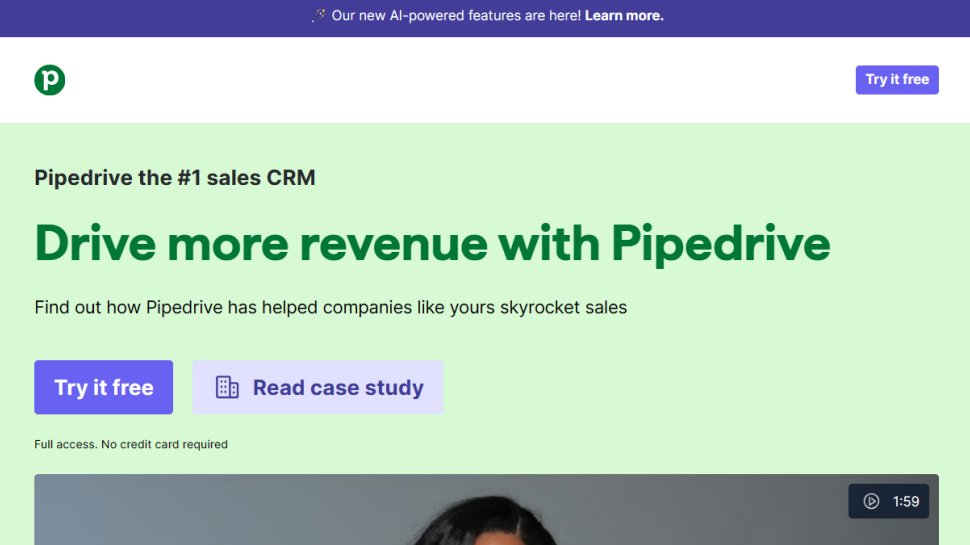
Pipedrive is a popular CRM tool that’s affordable and thus suitable for small businesses with limited budgets. There’s no free plan, which is a drawback, but there’s a 14-day free trial period that you can start without inputting card details.
Pipedrive boasts of being a CRM “designed by salespeople, for salespeople”. True to its claim, you can do many things with this CRM. To start, you can set up your sales pipeline with ease; you may build a new template or use an existing one. Afterward, you can add deals to the pipeline or import them from a CSV spreadsheet. After adding the deals, you can always monitor the progress up until the deal closes.
You can set up automatic alerts and reminders on Pipedrive to keep you on top of the deals. If a deal closes, the platform will automatically update your sales forecast to reflect it. Like many modern tools, Pipedrive incorporates some aspects of artificial intelligence that lets users automate mundane sales tasks.
This CRM is good for collaboration, so you can set up accounts for your staff to work together to close sales deals. As the administrator, you can always monitor their progress and remind them if they’re falling behind. You can create web forms using Pipedrive and embed them on your website to gather leads. The platform provides form templates designed by professionals, which you can edit to fit your tastes.
Pipedrive gives you detailed reports on your activities or that of your staff. However, we observed a pattern of customer complaints of the reporting features lacking depth and needing improvement.
Read our full Pipedrive CRM review.
Best for project management
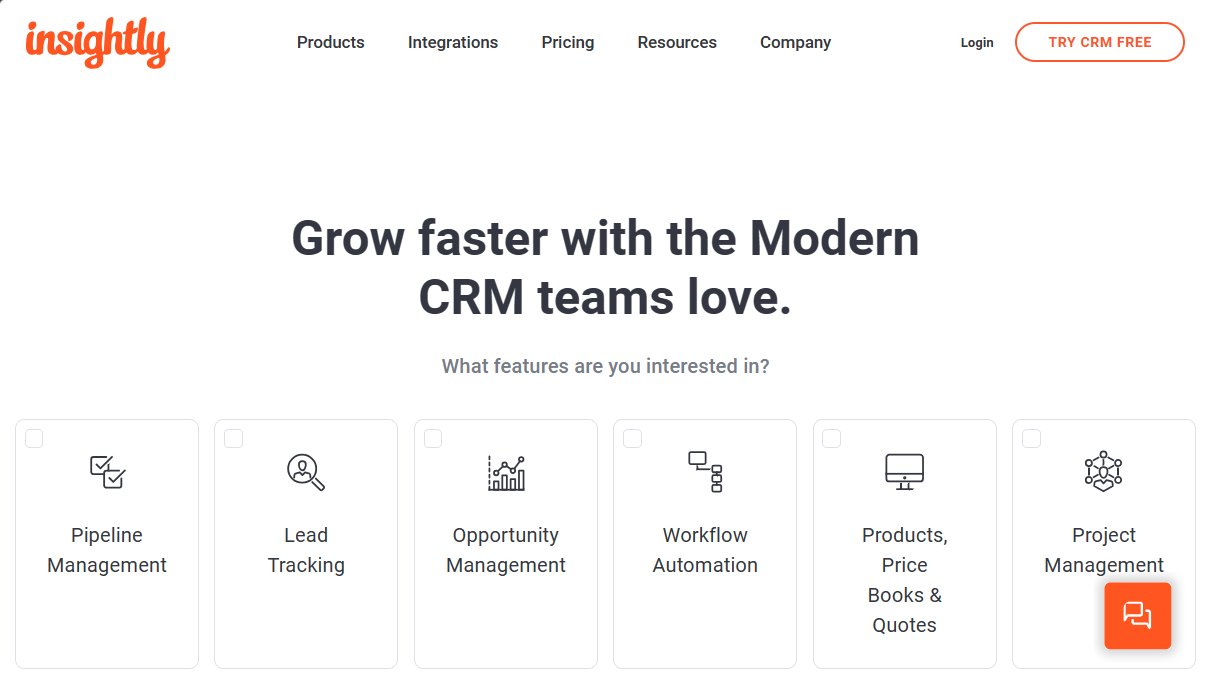
Insightly is a CRM platform that lets you handle all your sales functions. You can create custom workflows for your sales deals and track them as you progress toward closing the deal. You can create or update records and generate tasks for other users within your organization to handle.
You can send emails to your leads and customers right within Insightly because it has integrations with email clients. The platform tracks the delivery of your emails and reports back important data such as open and click-through rates.
As a business owner, you have a great deal of control over what your staff can do on this CRM. You can set special permissions and visibility levels for each user or according to role or department. For example, normal employees may not be able to view detailed sales reports, while executives can.
Another good thing about Insightly is that you can use workflow automation to automate a lot of mundane sales tasks. For example, you can set it to send an automatic email once a lead reaches a specific stage of your deal. You can also automatically update your sales forecast after closing a deal. These are just some examples of how your sales team can save time to be put to better use elsewhere. Creating these workflow automations requires a bit of technical knowledge, but it’s not as complex as typical programming.
What customers mostly highlight about Insightly is its extensive integrations with third-party tools. The platform is second to none in this category. You can link your Insightly CRM profile with many other tools for additional functionality. For example, you can link it to your BambooHR account to sync employee records with corresponding user profiles on Insightly or link it to your Shopify account to automatically capture customer details from your online store and add them to Insightly.
The main drawback we observed is that Insightly charges extra money for phone support, unlike most rivals. Without paying, you’re stuck with email support, which is much slower than phone support.
Read our full Insightly review.
Best for tracking
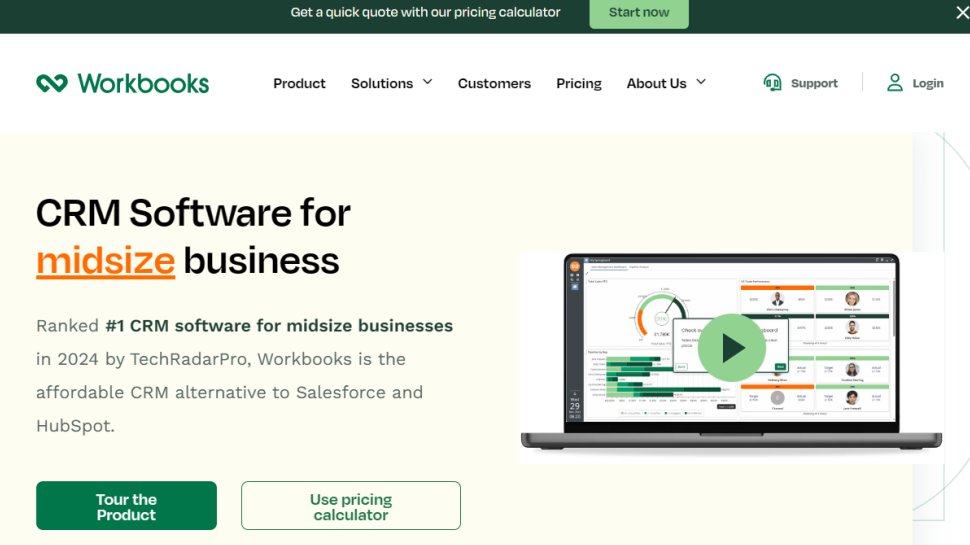
Workbooks is another good CRM for small businesses. It enables you to track sales and interact with customers within one platform. You can use it to record and keep track of sales activities and ensure that no part of them is overlooked.
Workbooks is very good at contact management; you could use every interaction with your lead or customer to capture knowledge about them and map relationships. You can also segment customers according to different factors and interact with each segment better.
This platform provides tools to track your business’s finances closely. For example, you can track all your suppliers and their prices and record every communication you make with them. You can also create supplier contracts within the dashboard and keep track of each one. Likewise, you can create professional sales quotes to send to clients and track their status are they’re fulfilled.
The area where Workbooks shines most is in its reporting features. The platform makes it easy to generate detailed reports that give you great insight into your sales pipeline. For example, the reports can help you identify which market segments and products are giving you the highest revenue. You can also easily monitor which salespeople in your organization are hitting or missing their targets.
The main drawback with this platform is that it has limited integrations with third-party software, unlike a rival like Insightly.
Read our full Workbooks review.
FAQs
How to choose the best CRM for small business
Ultimately, choosing the best CRM for small business depends on your needs—does software with more cost-effective pricing take precedence, or are the higher levels of personalization and efficiency that often come with a pricier plan more important?
For instance, Salesforce would be better suited to businesses undeterred by the higher costs associated with the higher levels of customization on offer. It can also expand with your business, while less efficient CRM platforms like Hubspot may struggle to keep up with demand as your business grows. Those looking for an easily-integrable, simple, and affordable CRM solution may want to consider Streak instead.
Overall, ease of use is an important factor to consider. CRM software is something that will be incorporated into the daily operations of your business, so you’ll want something that you and your colleagues can hit the ground running with—there’s no point investing in a technical CRM if no-one can understand it.
You’ll also want to consider the features most beneficial to your daily operations, like project management features, lead generation tools, and third-party app integration, as the focus of each CRM software can differ.
Reasons why small businesses need a CRM
While determining the best CRM for small businesses will depend on individual priorities, the software options presented in this buying guide are all strong contenders for small businesses—though ultimately, the size of your small business will likely determine the best option.
For instance, Streak CRM and HubSpot both offer free plans which would suit individual professionals or businesses just starting out, while Freshworks prides itself on being a good all-rounder for small- to mid-sized businesses. Zoho would provide an ideal CRM for existing users of the Zoho Suite, while Salesforce leads the way overall as the CRM industry giant.
| CRM software | Price | Free plan? | Trial period | Support |
|---|---|---|---|---|
| Salesforce | From $25 per user a month | No | 30 days | Email, ticketing, and phone |
| Freshsales | $15 per user a month | Yes | 21 days | Phone and email (Mon-Fri) |
| Zoho CRM | From $14 per user a month | Yes | 15 days | Email (Mon-Fri) |
| HubSpot | From $45 for two users a month | Yes | 14 days | Live chat, phone, online meeting |
| Streak CRM for Gmail | From $15 per user a month | Yes | 14 days | Email, with priority support for Enterprise plans |
CRM features and benefits explained
How we test
When finding areas of focus for reviewing CRM software, we look at key components to determine the overall quality of the user experience. We examine aspects like pricing by examining the plans that are available, how many users these allow, and whether any other additional costs are involved.
We also look at the software features that would make your work life easier; reporting, automation, client management, and AI integrations, and whether there is adequate customer support on-hand to assist with this.
Other important areas in our reviews are software usability and support; is the interface user-friendly and intuitive? If you were to get stuck, is immediate support available 24/7, or will responses take two to three working days? By examining aspects like this, we can determine the overall user experience of the software and make informed recommendations.
Read how we test, rate, and review products on TechRadar.
Further reading on CRM software
If you want to find out more about CRMs, read our features asking what is CRM software, and what is a CRM in real estate. We also discussed five reasons why you need a small business CRM, and seven changes to a CRM for business that drive customer growth. You might also find our other buying guides helpful, which look at the best CRM for real estate and the best free CRM software.
We’ve also listed the best productivity tools.
Get in touch
- You’ve reached the end of the page. Jump back up to the top ^

